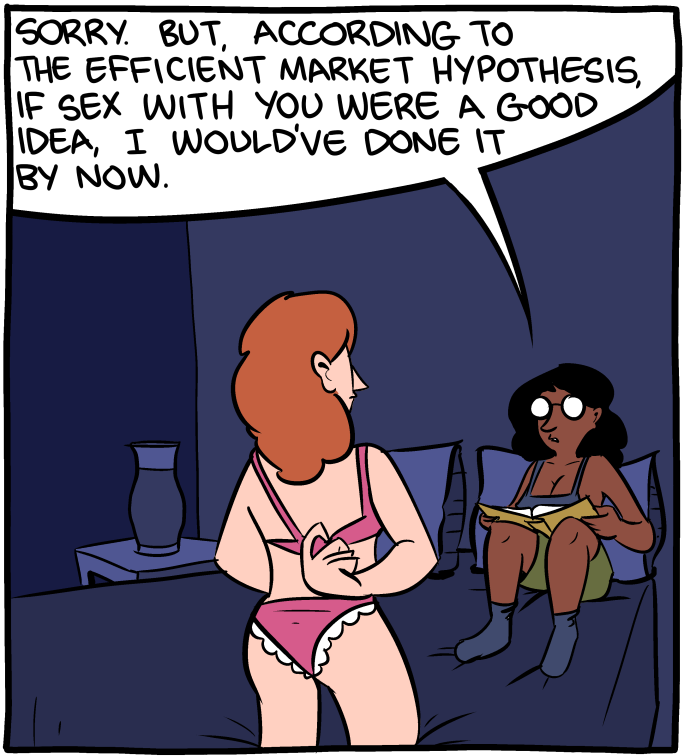When The Efficient-Markets Hypothesis Gets Taken Too Far, With Bonus Zoo Footage…
It’s no secret that many economists believe in the efficiency of markets- in fact, there’s a fairly well-known joke that goes something like the following:
Normal person: Hey look, somebody dropped $20 on the sidewalk.
Economist: Nonsense- that can’t be a real $20 bill, since, if it was, somebody would have picked it up already.
More generally, one feature of efficient markets is that all transactions that are profitable for all parties involved actually happen. This, however, doesn’t mean that no one can profit in an efficient market (which is why the economist in the joke’s logic is absurd), it just means that profit opportunities aren’t left on the table indefinitely in an efficient market.
The efficient-markets hypothesis puts a bit more structure on this concept, especially as it relates to financial markets (i.e. markets for stocks, bonds, etc.). The efficient-markets hypothesis, at its core, suggests that asset prices are “correct” in that they properly and rationally reflect all available information. This feature of efficient markets, according to economists, occurs precisely because market participants quickly take advantage of all of the ways to profit from asset mispricings, and these actions bring prices to their proper levels.
In another context, then, the efficient-markets hypothesis taken to the absurd extreme gets us this:

Full disclosure: I helped with this one, so you should probably blame me if you don’t like it....MORE